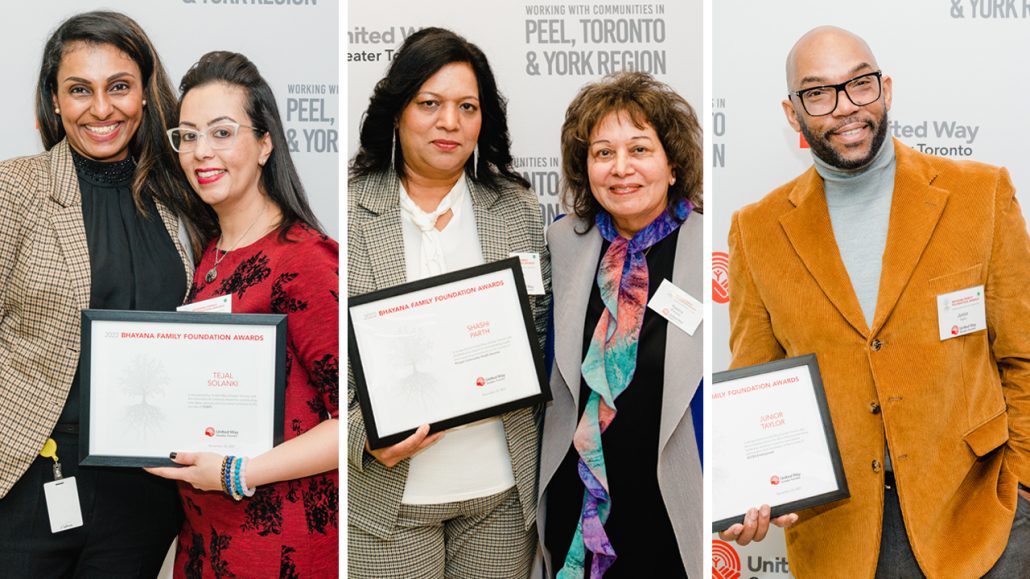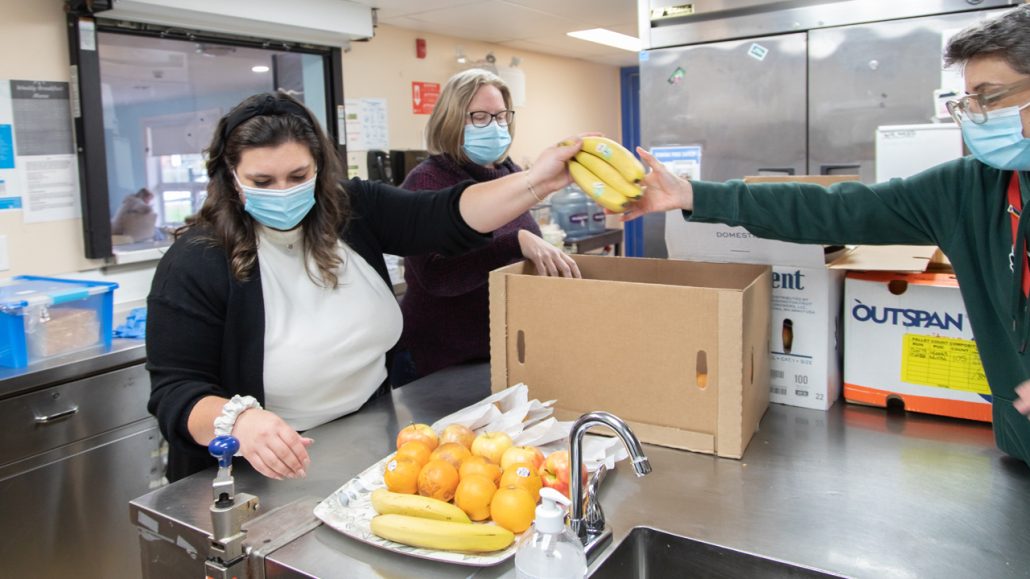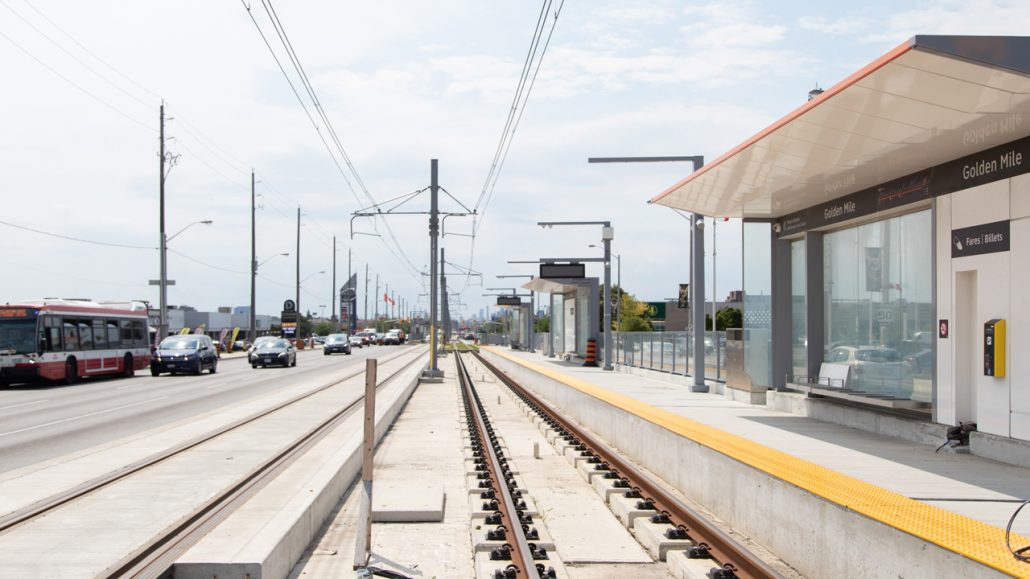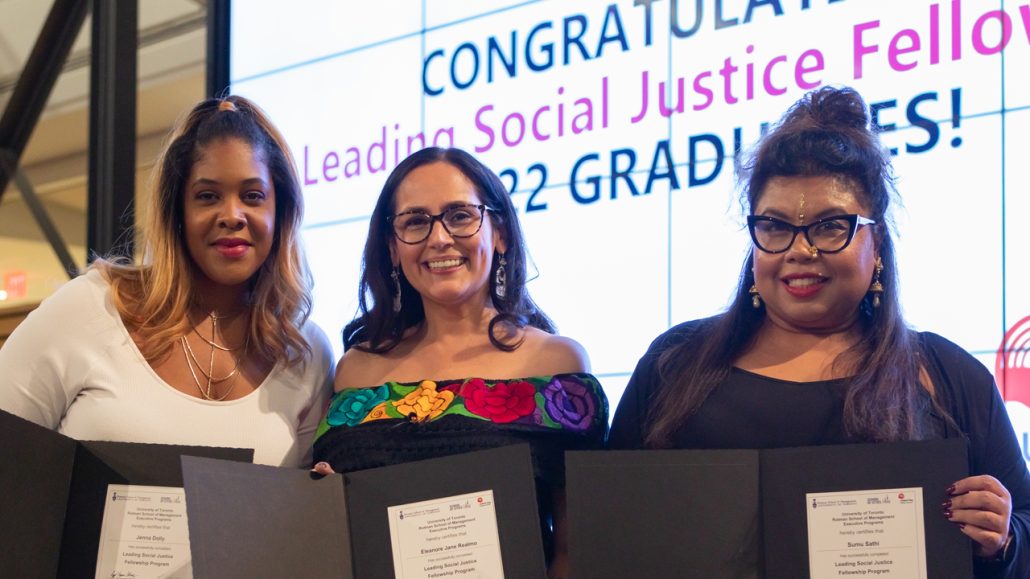
This Nonprofit Sector Appreciation Week, we’re celebrating the incredible frontline community workers in our network
Dear Friend,
You often hear me talk about United Way’s network. It’s a web of organizations and programs that make up a critical social safety net in our region. But it’s also a network of frontline workers who keep those programs running — making sure our friends and neighbours are fed, housed, connected and healthy.
I am humbled by the stories I hear each and every day of how staff at our agencies go above and beyond for the people they serve. As we close out Ontario Nonprofit Sector Appreciation Week, I wanted to share a few of those stories with you.
Access to food has been a constant challenge these past few years, but agency staffers like Shashi Parth of Punjabi Community Health Services have worked hard to keep people fed with culturally appropriate meals. Shashi has been a key force behind the Langar on Wheels program in Peel. She starts her days early, overseeing food prep, packing up meals and delivering them to 44 isolated seniors. And she doesn’t stop there. She’s also connecting them to other supports they may need, whether that’s helping them connect to other seniors or learning how to use technology.
Tejal Solanki has also been busy connecting people through technology. The Youth Mentoring Coach from COSTI Employment Services took on the additional role of Regional Coordinator of United Way’s netWORKS program, which went fully online due to the pandemic. She created a safe virtual space for youth, conducting more than 200 remote mentoring events. Thanks to her, talented young folks got the guidance they needed to succeed in their careers, with some even returning as mentors.
Tejal and Shashi weren’t the only frontline workers inspiring others during the past few years. Junior Taylor at ACCES Employment rallied support from senior staff and his Black colleagues to create the Black Action Coalition for Change, a safe space for Black ACCES employees to share and reflect on their lived experiences, support each other and create meaningful change within the organization. This network of 20 employees works collaboratively with ACCES leadership to implement equity and inclusion initiatives across the organization — and the impact has been impressive, building a pipeline of Black talent at ACCES leading directly to staff promotions.
These are just a few of the remarkable people working in our network (and just a few of the winners of a 2022 Bhayana Family Foundation Award). As I said in a video message to frontline staff earlier this week, I am awed by their dedication, ingenuity and care for our community. And I am so grateful that United Way can continue to support a vibrant network of organizations, programs and people across the GTA thanks to donors like you.
Always, and only, thank you.
Daniele Zanotti
President & CEO
United Way Greater Toronto
Things to Know Right Now

Provincial Budget Recommendations
Ontarians are facing many challenges — from food insecurity and record inflation to escalating mental health needs and a critical lack of affordable housing. With the right investments, we can not only tackle these issues, but ensure a future of shared prosperity. We’ve partnered with other United Ways across the province to identify four priorities to build equitable prosperity in Ontario, and recommendations that would benefit the people who are historically left out of these considerations and discussions:
- A strong community services sector able to deliver critical services
- Safe, affordable and accessible housing options
- Greater income security and equitable access to employment supports
- Inclusive, connected and equitable communities
We want to see a prosperous Ontario, but we want that prosperity to benefit everyone. That requires working together to invest in tangible solutions that will address the social and economic challenges facing Ontarians today.
Systemic Barriers
Andrew ‘Jaydahmann’ Cox was on the path to success when he wound up in jail for illegal possession of a firearm after his school basketball program was cut, destroying his dreams of an athletic scholarship. There were no supports or services to help him reintegrate into society, either in jail or once he was released, but thankfully he stumbled across the United Way and City of Toronto’s Partnership to Advance Youth Employment (PAYE) program, which provides employment opportunities to youth from low-income communities. Through the program, Andrew was able to get an IT help-desk job at a law firm and went on to college and a career in community development and advocacy. Andrew’s story is inspirational — but it’s also a reminder that youth growing up in Black communities face systemic discrimination and barriers, too often landing in the criminal justice system due to a lack of social support. Programs like PAYE can play a key role in breaking the cycle of incarceration, but it’s essential that we continue to address the barriers that block young people from marginalized communities from opportunities in the first place.
Supportive Housing
oronto’s Dr. Andrew Boozary spoke to NPR about how his team at University Health Network is working with the City of Toronto and United Way to provide unhoused patients with “what might be considered the ultimate in preventive care: the stability and dignity that comes with having a permanent home.” All three partners are behind the Social Medicine Initiative, a supportive housing development under construction in Toronto’s Parkdale neighbourhood that will be home to people experiencing homelessness who also have high health needs. United Way’s network of community agencies will ensure that residents have access to services and programs that meet their needs, including supporting their physical and mental health, food security and employment, social connection and more.
Update from the Frontlines

Inclusive Local Economic Opportunity Initiative
Newcomer Syed Jafri was delivering Uber Eats on his bicycle when he heard about the Aecon-Golden Mile (A-GM) training program, a joint venture with United Way’s Centre for Inclusive Economic Opportunity Golden Mile. The program provides residents from the Greater Golden Mile with free training and connects them to employment opportunities, kickstarting careers in the trades. After becoming one of the first graduates, Syed now works as a foreman with Aecon. A-GM is one of five ILEO pilot projects showing it is possible to grow, develop and build in ways that ensure residents benefit from the region’s prosperity rather than be left behind by it.
Child Poverty Rates
The national child poverty rate was reduced by 40 per cent in 2020, according to a new report by United Way-funded Family Service Toronto’s Campaign 2000. This progress was largely due to emergency and recovery benefits provided by the federal government and one-time top ups to existing federal programs. The 2022 Report Card on Child and Family Poverty in Canada, Pandemic Lessons: Ending Child and Family Poverty is Possible, also finds that without those pandemic benefits, the child poverty rate would have been close to 21 per cent, proving that investments in families experiencing poverty can make a difference. As those benefits have ended, the progress is not likely to be sustained going forward. But we can continue to advocate for policy changes that will make a difference in the lives of children and families experiencing poverty, and the report’s 50+ recommendations are a good place to start.
Get Involved

Leading Social Justice Collective
United Way Greater Toronto and the University of Toronto’s School of Cities are excited to welcome applicants to the Leading Social Justice Collective. The innovative city-building and leadership development program, now in its third year, is for leaders from the public, private and community sectors who are committed to tackling systemic social justice issues in the GTA. In a series of dynamic online seminars and coaching sessions between April and July 2023, participants will work together on social justice challenges within their communities and organizations. Applications are due on Feb. 27.
Black History Month
There is still plenty of time to learn about and celebrate Black History Month, with events continuing across Peel, Toronto and York Region.
- Join United Way-funded Canadian Centre for Victims of Torture for a discussion on the history of Black History Month and the Black diaspora, Feb. 23
- The Toronto Public Library is sharing Black Caribbean Heritage stories through their Dial-a-Story program. To listen, call at 416-395-5400
- An Unearth Uncover travelling exhibit developed to raise awareness about the lack of Black history in the Ontario school curriculum will be set up at community centres across Mississauga and Caledon until Feb. 28
- Afrique En Cirque by Cirque Kalabanté will be performed at Richmond Hill Centre for the Performing Arts, Feb. 28
Women’s Day event
In advance of International Women’s Day, United Way-funded Canadian Centre for Victims of Torture is presenting The International Impact of the Struggle for Women’s Rights in Afghanistan and Iran, March 3.